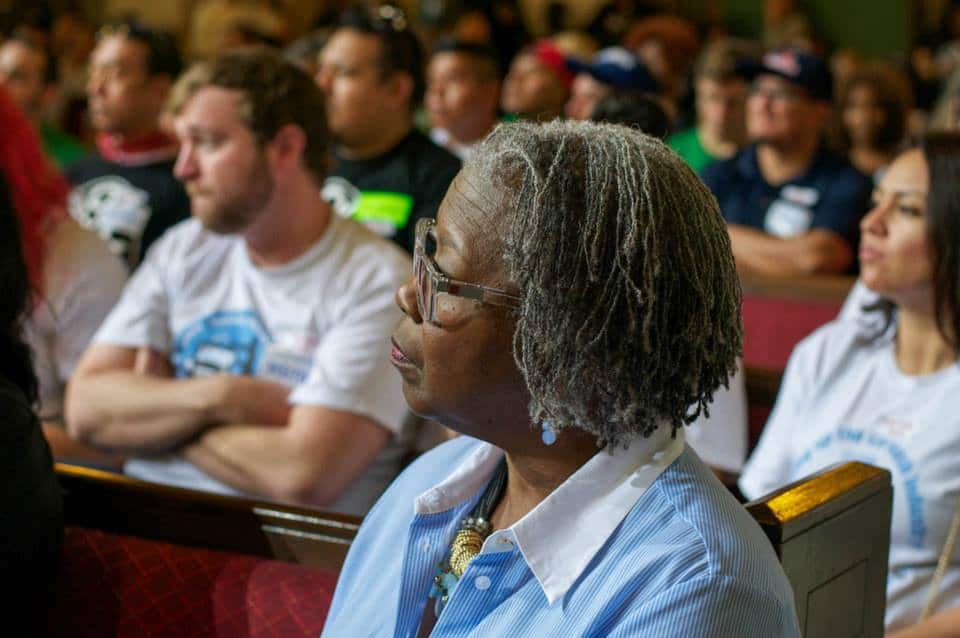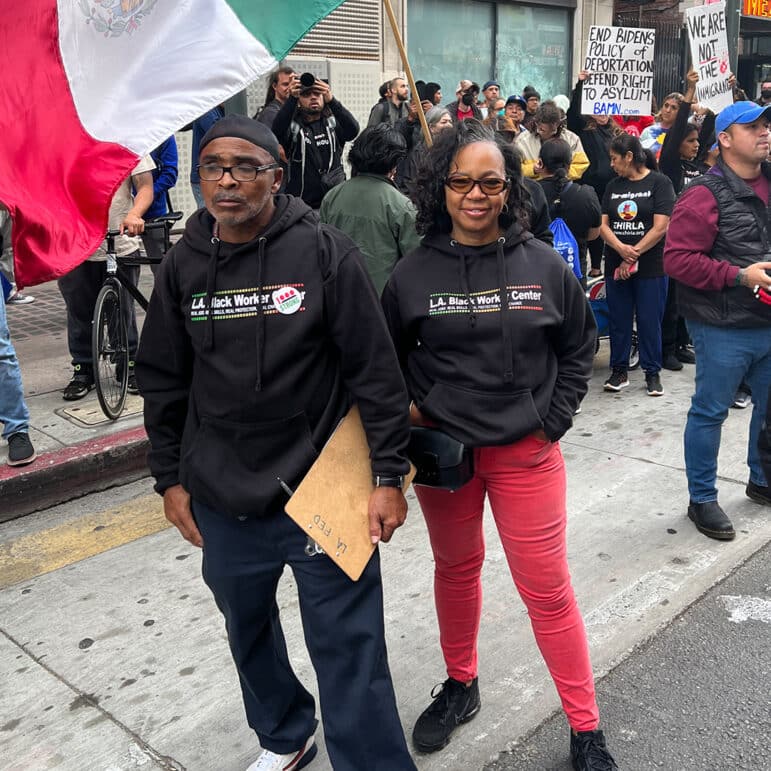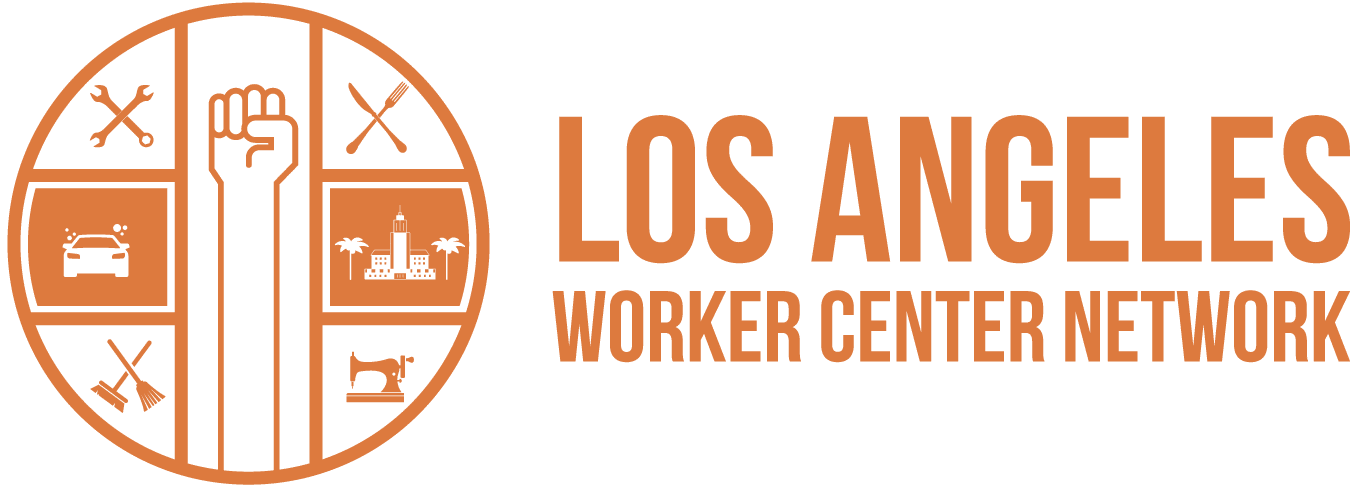
Employment Access & Fighting Discrimination
The large, persistent disparity in unemployment rates that exists between Black and white workers continues to pose a problem for the U.S. labor market.
Studies strongly suggest that racial discrimination—and not inadequate education or lack of skills on the part of Black workers—is the most plausible explanation for persistent racial disparities in unemployment. For Black women, race and gender bias have combined to drag down their success in the labor market.
In a victory for workers facing discrimination, Los Angeles Worker Center Network (LAWCN) member Los Angeles Black Worker Center successfully campaigned in 2019 to pass the Civil and Human Rights Law and create The Civil + Human Rights and Equity Department (LA Civil Rights, created in 2020) at the LA City Council.

The Civil and Human Rights Law prohibits discrimination in the private sector areas of commerce, education, employment and housing. It also allows local enforcement, so that Angelenos with an eligible discrimination case don’t have to wait to resolve it in state or federal courts.
In addition to partnering with the LA Black Worker Center, LAWCN supports fostering employment access and anti-discrimination through its partnership with Bet Tzedek Legal Services, as well as through its participation in the California Coalition for Worker Power (CCWP).
Bet Tzedek, a member of LAWCN, collaborates with LAWCN and its members to support and provide legal aid to communities who comprise a major share of Los Angeles County’s low-wage workforce and are the most frequent targets for employer abuses and exploitation.
LAWCN is also an active member of the California Coalition for Worker Power (CCWP), a group of worker centers, worker advocates, labor policy experts, and labor unions dedicated to ensuring that every worker in California has the power to come together and improve their work conditions and their communities.
Together, CCWP collaborates to advance legislation, funding, and implementation of worker protections, such as the Equal Pay & Anti-Retaliation Act (SB 497) and the COVID-19 Workplace Outreach Project (CWOP).
